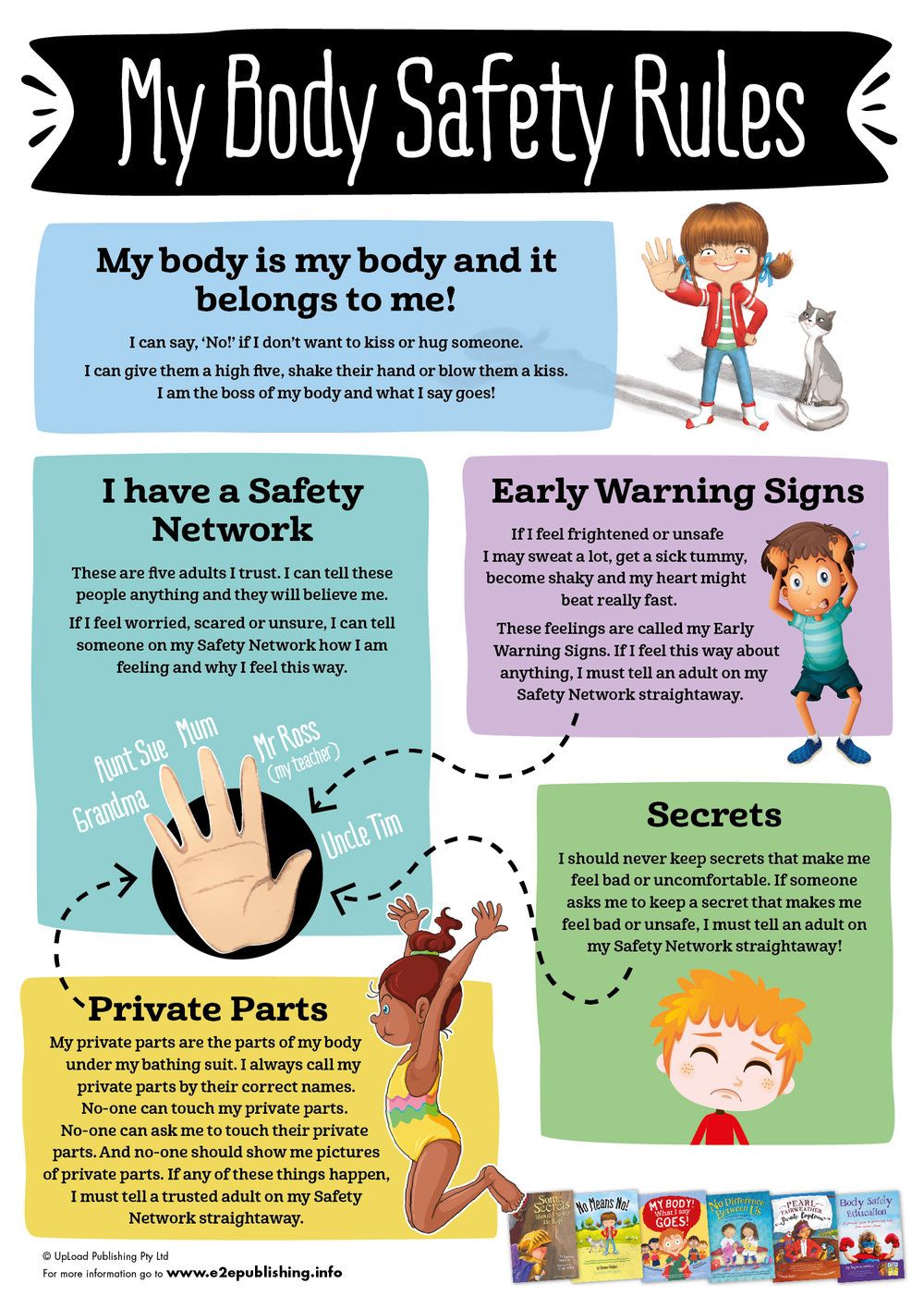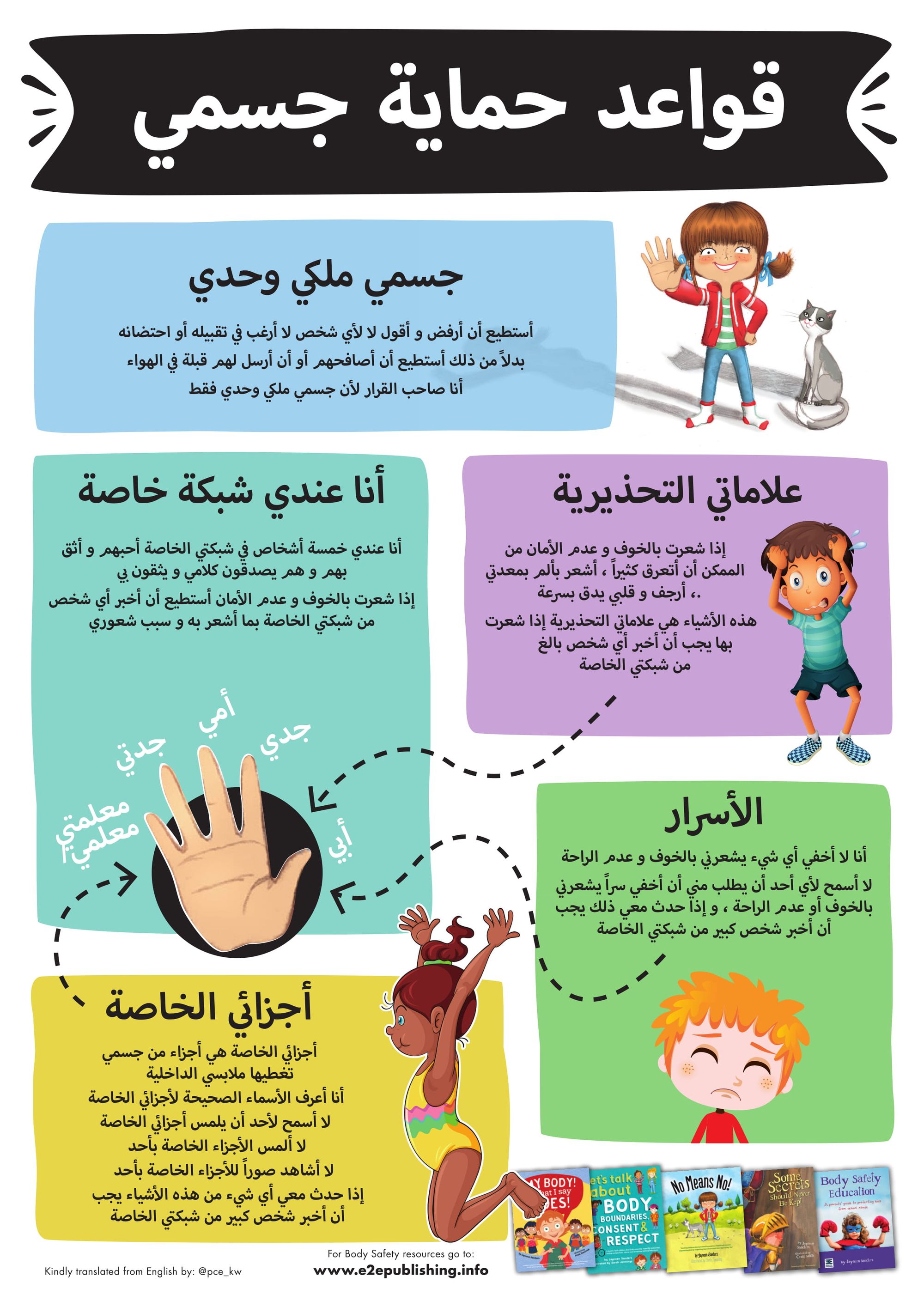Let's Talk: Child Protection
Parenting has its challenges...no doubt! Some days are better than others, however one thing we all want for our children is for them to be safe from harm, always. Although child protection can be a sensitive topic, it's a very important one and the earlier we teach our children how to keep safe the better.
Parenting has its challenges...no doubt! Some days are better than others, however one thing we all want for our children is for them to be safe from harm, always.
Although child protection can be a sensitive topic, it's a very important one and the earlier we teach our children how to keep safe the better.
My Body Safety Rules for young children
My body is my body and it belongs to me. First and foremost, try not to force your child to show physical affection and explain to your child that they can say “NO” if they don’t want to hug or kiss someone. If your child is showing reluctance to hug someone, identify a few alternatives like a high five, hand shake or blowing a kiss instead.
Ensure that they have a safety network. This means they can choose 4 or 5 safe adults they can trust and tell them anything (e.g. mum, grandma, aunt, teacher), especially if they feel worried, scared or unsure. Your child will then understand that they can speak to someone in their safety network about what they are feeling and why they feel this way. It is very important that you have a conversation with your child about why and who they are choosing for their safety network, even if it's a family member, family friend or a teacher. When teaching a child about keeping safe and seeking help, the idea of stranger danger needs to be reconsidered as perpetrators of abuse are often known to the family, and most sexual abuse occurs within already established biological and non-biological relationships.
Teach your child to read and understand their own Early Warning Signs. They may feel frightened or unsafe, sweat a lot, get a sick tummy, become shaky and their heart might beat really fast – these feelings are called early warning signs. Teach your child to understand that “if I feel this way about ANYTHING, I must tell an adult in my safety network straight away”!
Secrets. Whilst some may recall “secrets” as being a part of childhood fun, for many children it is the opposite; it is the start of a traumatic and abusive experience. Describe the difference between a good secret and a bad secret to your child. An example of a good secret can be in the form of a surprise birthday party, whilst a bad secret will make them feel unsafe, unsure or uncomfortable. Please tell your child that if someone asks them to keep a secret that makes them feel bad, worried, uncomfortable or unsafe, they will not be in trouble, that you care and they must tell a trusted adult straight away.
Private Parts. Explain to your child that their private parts are the parts of their body under their bathing suit. It’s important to teach your child the correct names of their private parts and that “no-body is allowed to touch my private parts and no-one is allowed to show me pictures of private parts”. If this happens, they must tell a trusted adult in their safety network straightaway.
BIS Abu Dhabi Counselling Team








.jpg?h=4160&iar=0&w=6240&rev=3a6f2141dddc472fb958169bb826c0d8&hash=73AB5BCB0D6782A16236413B7A9C7618)
.jpg?h=3648&iar=0&w=5472&rev=db1214d9abbf4d408432e5aef1f2d79a&hash=CC6C47871ABC9A2A697D7DF50D798106)


.png?rev=1619813b30a347d9bc71977e2cfe09d2&hash=66B98CDC659BBF07EB36660B4381E1E7)